France is one of the largest wine producers in the world, and arguably, one of the most significant, with a wine-making history that dates back to the Roman times. Taste through the different wine regions of France, from Bordeaux, Burgundy, Champagne, to Languedoc-Roussillon, Loire Valley, Rhône, Provence and beyond. Each region is known for different grape varieties, a unique growing environment, and their special wine production philosophy.
319 products
- Red Wine
- Grenache, Mourvèdre / Monastrell, Samso / Carignan, Syrah
- Sustainable, Vegan-Friendly
- Dry
- Medium Bodied
- 750ml
- 14.5% alc./vol
About the Winery
Domaine Andre Aubert
At the very heart of the Rhône Valley, at the northerly tip of the Southern Rhône, lie the vineyards of Grignan-Les-Adhémar. The chances are you haven’t heard the name before, few people have, but the wines are worth seeking out. It’s not a new wine region – vines have been planted here since around 500BC but it is a new name (formerly known as Côteaux-du-Tricastin). Domaine André Aubert, has been formed over decades and today comprises of more than 280 hectares spread from north to south of the prestigious Southern Rhone Valley on the appellations Côtes du Rhône, Côtes du Rhône villages, Visan, and Grignan-les-Adhémar.
Press Reviews
Wine Align
90 points - David Lawrason
This is new appellation (formerly Coteaux de Triscatin) is the northernmost in the southern Rhone. It uses the typical southern Rhone varieties, but none can be more than 80% of the blend. This is a quite elegant, well structured, mid-weight red with some stony minerality, lifted pepper and savoury notes. Not as opulently fruity and rich as many peers, yet very tidy and balanced. The length is very good to excellent. Tasted March 2022
- White Wine
- Sauvignon Blanc, Sémillon
- Vegan-Friendly
- Dry
- Light Bodied
- 750ml
- 12.50% alc./vol
About the Winery
Château Haut-Grelot
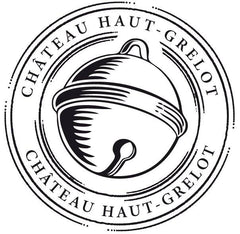
Château Haut Grelot is located in Saint Ciers Sur Gironde, approximately 50 kms north of Bordeaux, on the right bank of the Gironde Estuary. It was established by the Bonneau family in 1922 and now run but the 4th Generation. Today Château Haut-Grelot comprises 58 hectares of vineyards and is run by Céline and Julien, who was recently awarded the title 'Best Young Talent' in Bordeaux.
The vineyards are made up of sandy-gravel on the hillsides bordering the Gironde Estuary and sand-clay-silt on the hillsides further inland. Blaye Côtes de Bordeaux benefits from an ideal microclimate where there is a high level of sunshine and enough rain to guarantee the perfect environment for grape production. As a result the reds are fruity and concentrated and the whites are fresh, vibrant and delicate.
- Rosé Wine
- Cinsault, Grenache, Syrah
- Organic, Vegan-Friendly
- Dry
- Medium Bodied
- 750ml
- 13.5% alc./vol
About the Winery
Mas Carlot

Mas Carlot is situated in the south of the Rhône Valley, extending across 76 hectares of pebbly land southeast of Nîmes. Originally a 17th century farm, this beautiful estate was resurrected in the 1960's by the Blanc family—it is currently run Cyril Mares of the neighbouring and equally reputable property, Mas Bressades.
The appellation of Costières de Nîmes used to be considered part of eastern Languedoc but the climate, soil, topography and wine are far closer to those just over the river in the Southern Côtes du Rhône. It is now a region very much on the up and is widely recognized as a great source of excellent value wine.
- Sparkling Wine
- Chardonnay
- Sustainable, Vegan-Friendly
- Dry
- Medium Bodied
- 750ml
- 12.00% alc./vol
About the Winery
Domaine Baud Père et Fils

The history of Domaine Baud dates back to 1742, and it wasn't until 1950 when René Baud, the 7th generation, rebuilt the vineyard which had suffered from the phylloxera crisis and two World Wars.
Starting with only 4 hectares, the vineyard progressively expanded to 20 hectares with the help of successive generations. Now, managed by siblings Clémentine and Bastien, the 9th generation, the estate continues to flourish and grow, with a strong commitment to sustainable viticulture and preserving the traditions and style that makes the wines of the Jura so unique and incredible.
The estate achieved the Terra Vitis certification in 2014 for its eco-friendly work and environmental preservation.
Press Reviews
Wine Align
92 points - David Lawrason
This is a very tasty, rich, golden hued, well aged chardonnay-based sparkler with an involved nose of cashew, baked apple, nougat and honey. It is almost creamy in texture with fine mousse and very good acidity providing counterpoint. There is pleasant nutty bitterness on the finish; length is excellent.
92 points - John Szabo, MS
A traditional method, pure chardonnay bubbly from the Jura of considerable maturity and toasty-oxidative character, also notable dosage - the style has changed little since last reviewed almost 8 years ago (though this is a new, non-vintage bottling, of course). It's maple syrup and curry-infused with dried citrus and apples, indeed with quite impressive complexity in a mature style. Length and depth are very good. Quality wine, attractively priced in the category. Tasted January 2026.
91 points - Michael Godel
Increased autolysis and also richness from the present bottle of Baud’s Blanc de Blanc. Some maturity here, an evolution of bread and gingered elements that make the wine feel like it’s reached the peak. Complex and flavourful in any case with creamy textures and mouthfeel in between. Last tasted January 2026.
91 points - Sara d'Amato
From an old estate now in the hands of ninth-generation family upstarts, this traditional-method chardonnay Blanc de Blanc comes from the remote, rocky, high-altitude Jura, wedged between Burgundy and Switzerland. Generous yet clean, it leans pleasantly conventional in the best sense. Autolytic notes mingle with florals, tender fruit, and subtle toasty layers. A measured dosage adds welcome weight to an otherwise light-footed palate. Lemon zest, white grapefruit, and sweet cream lead into a nicely poised finish of memorable length. Tasted January 2026.
91 points - Megha Jandhyala, S.J.D., DipWSET.
This is a winsome chardonnay-based crémant, with a subtly toasty flavour profile, led by flavours of green orchard fruit and juicy citrus fruit. It has begun to evolve, showing signs of maturity in the form of notes of toasted nuts and fruit flavours transitioning towards the dried end of the spectrum. The palate has lively acidity and subtle sweetness, with a finish that is slightly bitter adding to the overall sense of freshness. This balanced and classic sparkling is ready to go. Tasted January 2026.
Treve Ring
91 points
This family estate dates back to 1742, but it wasn't until 1950 when René Baud, 7th generation, rebuilt the vineyards, expanding from 4 hectares into 20 hectares over the years. Today the estate is managed by siblings Clémentine and Bastien, 9th generation. This sustainably farmed chardonnay is rooted in the Jura's marl and limestone soils and was fermented in stainless before a year on lees before disgorgement and release. Green apple, white florals, oyster shells, meadow herbs, meringue run the bright, sleek palate, with a bed of creamy lees. There's a lovely streaming anise note that leads to a lengthy finish. Drinking beautifully now, but will hold over the next couple years easy.
- Red Wine
- Carignan, Grenache, Syrah
- Dry
- Medium Bodied
- 750ml
- 14% alc./vol
About the Winery
Domaine Frédéric Brouca

Frédéric grew up in Normandy and met his Canadian wife Elaine at university in Lille, Northern France. They live a nomadic lifestyle (Canada, India, Singapore and USA) though Frédéric spends about half of his time in Faugères. Since early age, Frédéric had a calling for farming and the fierce desire to become a winegrower. After completing a Masters Degree in Finance in 2001, Frédéric went back to college for a Sommelier diploma and started his career as a Burgundy wine broker.
In late 2012, Frédéric and Elaine were fortunate to take over 25 acres of old vines in Faugères, organically farmed for twenty years and deeply rooted in schist soils.
2013 was the inaugural vintage for Domaine Frédéric Brouca. In his modest winery in the village of Laurens, Frédéric is creating a new vision for Faugères wines; fresh, vibrant and made without artifice. Nothing revolutionary, simply returning to our grandparent's ideology of farming and winemaking to craft 'Vins Vivants'. The Faugères Appellation is in the heart of Languedoc in the Hérault department. Here, winemaking dates back to the Greek times and was developed during the Roman Era. It wasn't until the early 1900's, however, that the wines became more widely known for its unique schist soils and moderate Mediterranean climate. These villages are heavily reliant on wine as an important part of their culture and economy.
The area is stunning with mountain views and close proximity to the Mediterranean Sea (20 miles / 30 kms). Faugères has a long history of responsible farming. It boasts the highest percentage of organic vineyards for any AOC in all of France with almost 50% of farmers making the choice.
Press Reviews
Wine Align
91 points - Sara d'Amato
A biodynamically-grown blend of grenache (40%), syrah (30%) and mourvèdre (30%) from the schist soils of the hilly, coastal appellation of Faugères. A low-interventionist style fermented spontaneously with 10 months of maturation in stainless steel vats and neutral oak. Clean and juicy with lively red fruit and hints of peppercorn, anise, pine needles, and juniper. Silky tannins and some warmth on the finish point to a riper vintage. Notably complex but effortlessly drinkable. Very good length.Tasted in magnum at Terroirs & Millésimes 2024.
- Red Wine
- Cabernet Sauvignon, Merlot
- Dry
- Medium Bodied
- 750ml
- 13.6% alc./vol
- White Wine
- Marsanne, Roussanne, Viognier
- Organic, Sustainable, Vegan-Friendly
- Dry
- Full Bodied
- 750ml
- 13.20% alc./vol
About the Winery
Mas Carlot

Mas Carlot is situated in the south of the Rhône Valley, extending across 76 hectares of pebbly land southeast of Nîmes. Originally a 17th century farm, this beautiful estate was resurrected in the 1960's by the Blanc family—it is currently run Cyril Mares of the neighbouring and equally reputable property, Mas Bressades.
The appellation of Costières de Nîmes used to be considered part of eastern Languedoc but the climate, soil, topography and wine are far closer to those just over the river in the Southern Côtes du Rhône. It is now a region very much on the up and is widely recognized as a great source of excellent value wine.
Press Reviews
Wine Align
91 points (2022) - John Szabo, MS
Good volume and fruity depth here on this southern Rhône from Mas Carlot, richly flavoured, properly sapid, and saliva-inducing. I like the broad and rich palate, the long finish. White-fleshed orchard fruit leads and lingers. Top notch, and lovely. Tasted January 2024.
90 points (2022) - Megha Jandhyala
This golden southern Rhône blend is charmingly ripe and fleshy, even comforting, with notes of apples, tangerines, lychee, and toasted bread. The palate is mellifluous and pleasantly full, with a satin silk-like richness and juicy acids. The finish is gently warming, faintly bitter, and delicately textured. Tasted January 2024.
- White Wine
- Sauvignon Blanc
- Sustainable, Vegan-Friendly
- Dry
- Light Bodied
- 750ml
- 13.5% alc./vol
About the Winery
Domaine de Mauperthuis

A family estate created by Marie-Noëlle & Laurent Ternynck, Domaine de Mauperthuis is located in Prehy, near the town of Chablis. Their wines express the terroir of this amazing region and the vineyards are currently undergoing the transition to organic. Domaine de Mauperthuis covers around twenty hectares of vineyards around Chablis. The estate, in the Burgundy appellation, is planted in Chardonnay, Pinot Noir, Sauvignon and César, on land facing south, benefiting from exceptional sunshine.
Press Reviews
Wine Align
91 points - David Lawrason
Saint Bris is a rare sauvignon blanc appellation in northern Burgundy, pres de Chablis, which is not all that far as the crow flies from Sancerre. And I definitely get that tight, firm if less mineral character here. Expect generous aromas and flavours of juniper, grapefruit, pine needle and gooseberry/guava. It is medium weight, firm and dry, with some bitterness. The length is excellent. Always fun to present it this blind to sauvignon blanc fans. Tasted January 2024
Value Rating: 5 Stars
90 points - John Szabo, MS
This is an uncommonly ripe and fruity sauvignon blanc from Saint Bris in Burgundy, round and creamy, quite full bodied despite just 12.5% alcohol declared, with ripe orchard and pineapple fruit leading. Acids are creamy yet still fresh, and length and depth are very good. And while I'd love a little more complexity at the price, or at least would have expected, the current international yardstick of inexorably increasing prices secures this wine a spot in a favourable quality/cost zone. At peak now I'd say to capture the fruit. Tasted January 2024.
90 points - Megha Jandhyala
Saint Bris is an appellation in Bourgogne that, unusually, is centred around sauvignon blanc. This is a lovely example, showing poise and grace but also inviting and expressive flavours of peaches, apricots, grapefruit, and a hint of passion fruit. The palate is medium bodied and fleshy, with juicy acids. The length is very good, with a refreshing citrusy finish. I would drink this over the next year or two. Tasted January 2024.
- Red Wine
- Pinot Noir
- Sustainable
- Dry
- Medium Bodied
- 750ml
- 13% alc./vol
About the Winery
Groupe Bellene
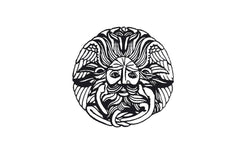
Led by Nicolas Potel in Beaune, Groupe Bellene is composed of the négociant arm Maison Roche de Bellene, the winery arm Domaine de Bellene, and a special back-vintage series under the Collection Bellenum label.
- Maison Roche de Bellene offers a complete range of wines, with an emphasis on individual terroirs from old vines of more than 40 years. All of the growers that Nicolas works with are either organic certified or sustainably farmed.
- Domaine de Bellene represents the wines that are produced and bottled from Nicolas Potel's private vineyard holdings.
- Collection Bellenum is a back vintage series that Nicolas Potel sourced from his friends in the region, offering a magnificent selection of bottled history. The wines have moved only twice in their lives, from the original cellar to Potel's and now to yours!
Nicolas Potel grew up at Volnay's Domaine Pousse d'Or, where his father worked. He trained abroad and returned home in 1996 to build a négociant business and started Maison Nicolas Potel, where he sourced grapes from good parcels, often working with the growers to improve the quality. By 2002, he was making 120 wines from 50 different appellations, and the rest is history!
Press Reviews
Wine Align
90 points - Megha Jandhyala, S.J.D
This is a solid entry-level Bourgogne pinot noir - supple and juicy, brimming with flavours of dark cherries and underbrush, alongside notes of toasted spice and a hint of cured meat. Tannins are ripe and rounded; acids provide just enough lift. The finish is long, ending on a pleasantly herbal note. Tasted March 2025.
90 points - Michael Godel
Nothing quite like a “normal” year to craft the most getable and crushable Bourgogne at the behest and passionate hands of Nicolas Potel. Old vines are in the 45 to 50 year range in highest of high density plantings harvested at a “normal” time in this post-modernist, climate adjusted period. That being the 5th to the 13th of September and fruit already ripe, burning the brix and phenol candle at both ends. Nose in to the promise of violets and roses, dive in for crunchy red fruit and some pretty solid tannins. That early yet necessary pick preserved acids with much to say in a pinot noir as tart and spirited as it is enriching of spirit. Despite the high drink-ability factor the structural parts creep up so wait a year for this to settle further. Drink 2022-2025. Tasted June 2021.
90 points - Sara d'Amato
Lovely, bright, crunchy and lively, this entry level Bourgogne from Roche de Bellene rarely disappoints. With a fine, elegant, and well-integrated oak treatment and an invitingly silky texture, this pinot noir is notably compelling and delivers solid value. Excellent length. Tasted June 2021.
- Rosé Wine
- Cinsault, Grenache, Syrah
- Dry
- 750ml
- 12.5% alc./vol
About the Winery
Maison Idiart
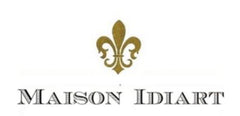
Maison Idiart is a wine négociant based in Bordeaux and established in 2013. Nicolas Idiart, winemaker and founder of Maison Idiart, grew up with a passion for wine, something that he shared with his father and grandfather.
He graduated from Bordeaux winemaking school in Blanquefort at 19 years old. Nicolas' love for Loire wines took him to work in Chinon, Touraine and Muscadet. He also had experiences in Australia and New Zealand. After several years travelling the world, he decided to shift his work in the industry and work in sales, focusing in North America.
At 33 years old, after 7 years working in sales, he decided to go back to winemaking with an artisan approach, making small batches of handcrafted wines.
- Red Wine
- Cabernet Franc, Merlot
- Dry
- Medium Bodied
- 750ml
- 13.50% alc./vol
About the Winery
Château du Moulin Noir
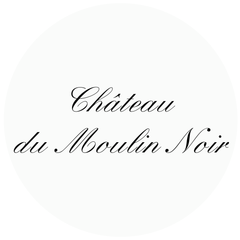
This beautiful right-bank Bordeaux estate consistently produces high-value, elegant and classic Merlot dominant wines and is considered one of the most famous Château of this appellation. Located in Montagne-Saint-Emilion, Château Moulin Noir consists of seven hectares of vineyards on clay and limestone soils.
This château owes its name to a family feuddating back to the Middle Ages. Two brothers were arguing about their father’s legacy with the youngest brother being incredibly jealous that everything went to the elder. He was so jealous that he burnt the château to the ground - Moulin Noir translates to “blackened Mill”.
- Red Wine
- Cabernet Franc, Cabernet Sauvignon, Merlot
- Dry
- Medium Bodied
- 750ml
Press Reviews
Wine Align
90 points (2016) - David Lawrason
The 2016 vintage has put some punch into this inexpensive merlot-based Bordeaux. There is a sense of volume and energy. The nose is quite lifted with blackberry/raspberry fruit, notable herbal presence, some meatiness and spice. It is medium-full bodied, with warm alcohol, juicy acidity and some slightly green tannin. The length is excellent. Best 2025 to 2030
89 points (2016) - Michael Godel
Blends merlot, cabernet sauvignon and cabernet franc for a Right bank bruiser, especially at the cost. The wood is still very much in charge and if the 2014 showing at this stage is any indication then 2016 will need even more time to unwind. In this stage the merlot is in full command, verdant, savoury, herbal and with toasty oak flavours yet settled. Wait on this one. Drink 2022-2026. Tasted November 2021.
- Sparkling Wine
- Chardonnay, Pinot Noir
- Sustainable, Vegan-Friendly
- Medium Bodied
- 750ml
- 12% alc./vol
About the Winery
Champagne Fresne Ducret
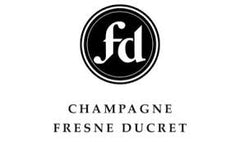
Fresne-Ducret is rich in family history and has been rooted in the premier cru village of Villedommange since the mid 1800s. Originally growing grapes for the big champagne houses, it wasn’t until the end of the second world war that the family decided to make their own wine. The tradition carries on today with Pierre Fresne and his wife Daniella (an Oakville ex-pat). Their philosophy is to produce wines that best exemplify the terroir of Villedommange, and they do this with sustainability in mind.
In 2014, Pierre Fresne embarked on a new adventure by creating a limited series of champagnes based on his desire for experimentation. Since then, he has produced one or two of these wines each year. Each are unique, according to his wishes and the profile of the vintage. This unique collection is called Arquémie, the term for alchemy in the Middle Ages. In 2018 Pierre began converting the vineyards to organic viticulture, and 2021 will be their first organic certified vintage.
Press Reviews
Wine Align
96 points - David Lawrason
This has a very intriguing, generous nose of macaroon (coconut), straw, dried apple, toast and almond/hazelnut. Also a lovely sense of sweet nut fudge. It is medium bodied with fulsome flavour, riveting acidity and all kinds of Champagne minerality. Great focus and length here. Wow! Tasted October 2020
93 points - John Szabo
Fresne Ducret's latest release of this premier cru "Chemin du Chemin champagne is a characteristically smoky and savoury, toasty and biscuity, mature champagne in the English style, balanced and savoury. I really like the developed, mature profile here, the great length. This is very good champagne ready to go. Tasted October 2020.
93 points - Michael Godel
When richness, yeasty and warm toasted brioche get together in Champagne the effect is comforting and potentially hypnotizing. From the Premier Cru village of Villedommange dating back to the mid 1800s, the pedigree is noted and the 48 months of lees aging a coup for creating both a creamy and a revitalizing Champagne. There is an oxidative aspect here and it's effectualness is one that imagines exotic spice cupboards, masala mixes and gingery tisanes. Quite the exotic bubble, lightly frothy, elegantly styled, complex and fine. Drink 2020-2026. Tasted October 2020.
Wine Enthusiast
94 points
This Champagne shows some fine maturity. A blend based on the 2014 vintage, it now has toastiness while keeping intense freshness. Acidity and touches of minerality come through the spiciness. Drink now.
- Red Wine
- Gamay
- Biodynamic, Sustainable, Vegan-Friendly
- Dry
- Light Bodied
- 750ml
- 13% alc./vol
About the Winery
Stéphane Aviron

Stéphane Aviron can be considered a pioneer in his approach to winemaking in Beaujolais, however he would just tell you that he’s simply returning to the traditional practices that have always made fantastic Gamay wines. Sustainable viticulture, extremely old vines and classic Burgundian techniques. He focuses on the Beaujolais village crus, all but forgotten gems of vineyards when the nouveau craze took over, which are the best sites for unique, expressive and terroir driven wines. All of the fruit is sourced from old vines (40+ years), so seeing Vieilles Vignes on the label is a rite of passage, not a privilege. Authenticity and a distinctly Beaujolais style of winemaking is what sets Stéphane apart from the rest.
Press Reviews
Wine Align
90 points (2020) - David Lawrason
This is a delicious, fairly juicy and charming young gamay. There is a hint of meatiness on the nose but all kinds of candied strawberry/cherry as well, and violet-like florals. It is light to medium bodied, open knit, slightly sour-edged with very generous fruit on the palate. The tannins are notably mild, the alcohol provides some power and the length is very good to excellent. Tasted June 2022
- White Wine
- Clairette, Grenache Blanc, Marsanne, Picpoul
- Organic, Vegan-Friendly
- Dry
- Full Bodied
- 750ml
- 13.50% alc./vol
About the Winery
Château de Montfaucon

Just across the Rhone river from the beautiful vineyards of Chateauneuf-du-Pape, the Lirac appellation extends itself on the low hills alongside the river. The history of Château de Montfaucon dates back to the 11th century when the castle's first tower was built. The castle's role in history was strategic; the Rhône River was the border between the French Kingdom and the Holy Roman German Empire. Montfaucon was one of many castles and fortresses along the Rhône River constructed to guard the border.
Rodolphe de Pins took over the family estate of Montfaucon in 1995 and subsequently rebuilt the winery and began practicing sustainable agriculture. He honed his winemaking skills in Barossa at Henschke and Vieux Telegraphe in Châteauneuf du Pape before returning to Lirac, so needless to say, his familiarity with the local varieties is well established.
Press Reviews
Wine Align
92 Points - David Lawrason
This is a blend of usual suspects among the white grapes of southern France with marsanne leading at 40% followed by clairette at 35%. It was fermented and aged in French oak barrels which accounts for the quite deep yellow gold colour. The nose is rather reserved but exotic and complex with waxy notes, apricot, orange peel, honey and wood spice. It is full bodied, almost thick, creamy and warming with 13.5% abv. Quite a mouthful, with some sense of wood tannin on the finish. Needs very rich savoury dishes. Excellent length. Tasted Nov 2025
91 points - Michael Godel
Comtesse Madeleine is a blend of marsanne and clairette with lesser amounts of grenache blanc and picpoul, likely named for Marie-Madeleine Pioche de la Vergne, comtesse de La Fayette, a 17th century French writer known for La Princesse de Clèves. Profound is once again the first word to slip from the tongue because neither Lirac nor Côtes du Rhône are normally poised to offer such substantial qualities. Aside from the flinty opening salvo there are wisps and whispers of aromatic complexities in between, all ahead of a maturity and knowing experience showing prominently at the finish. Once again gastronomical scents, of porchetta, herbs and other aromatics coming from this meatiest of white wines. Begins slower and takes longer to reveal its charms than the previous vintage tasted but once momentum makes gains then the stirring is activated. The finish is long and true. Drink 2025-2029. Tasted November 2025.
90 points - Sara d'Amato
This blend of marsanne, clairette, grenache blanc and picpoul, aged 8 months in oak barrels, is named in homage to Madeleine de Montfaucon, grandmother of current owner Rodolphe de Pins, who stewarded the estate for over 60 years. The wine offers a gently aromatic profile: floral notes, fresh linen, a touch of musk, and yellow fruit recalling mirabelle plum. Lanonlin and a lively mineral edge keep it fresh. The palate is fleshy, with oak spice playing a minimal supporting role behind the fruit. Highly drinkable, it gains richness as it unfurls. Features a lingering finish of memorable length. Tasted November 2025.
- White Wine
- Melon de Bourgogne
- Dry
- Light Bodied
- 750ml
- 11.9% alc./vol
Press Reviews
WineAlign
91 points (2022) - David Lawrason
Muscadet is a bellwether of climate change, with most tasted in recent years showing more ripeness that I am trained to expect. This is a shiny bright, pale lemon shaded example that captures more complexity and depth than expected at the price. The nose shows generous pear, lemon zest and tarragon, with signature Muscadet briny minerality. It is medium bodied, with brisk acidity and loads of fruit and warmth. Slightly bitter lemon on the finish. Excellent length. Chill well. Tasted November 2025
- White Wine
- Piquepoul Blanc
- Sustainable
- Dry
- Light Bodied
- 750ml
- 13.5% alc./vol
Press Reviews
WineAlign
90 points - Michael Godel
Tongue and cheek take on Picpoul de Pinet, labeled as “Poule de Pic,” a pecking hen picking at feed. The chicken’s varietal picpoul is a rich and viscous one, phenolic and platinum gold to suggest a few minutes more skin contact than the norm. Also suggestive of ripeness and another level of seriousness these wines don’t often make for the ambitious try. Tons of flavour, extract and even a spot of late appearing tannin. Brine a hen, prepare it as fried chicken and pair with some pickled peppers. Just don’t ask, if Peter Piper pickled a peck of poule di pic, where's the peck of poule de pic that Peter Piper pickled? Drink 2026-2028. Tasted February 2026.
90 ponts - Megha Jandhyala S.J.D., DipWSET
This is a delectable picpoul de pinet, with notes of citrus and orchard fruit and apple blossoms. The real attraction here is the palate - I really like its texture. Fleshy and rounded, ripe and fruity, it has a pleasing impression of sweetness that is balanced by a hint of bitterness and lively acidity. Broadly appealing and easy-to-like, this is a relatively uncommon white wine that might spark conversation at a dinner party and should pair well with fried calamari or fish and chips. Tasted February 2026.
- Red Wine
- Merlot
- Natural, Sustainable, Vegan-Friendly
- Dry
- Medium Bodied
- 750ml
About the Winery
Grains d'Estuaire
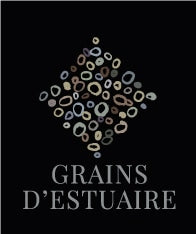
Julien Bonneau, (Château Haut Grelot in the Blayais), and his friend Alexandre Lavigne, restaurateur in Saint-Palais-sur-Mer, created in 2014 a range of wines, Grains d'Estuaire, from 'a 10 ha vineyard located in Saint-Bonnet-sur-Gironde, in the south of Charente-Maritime.





























